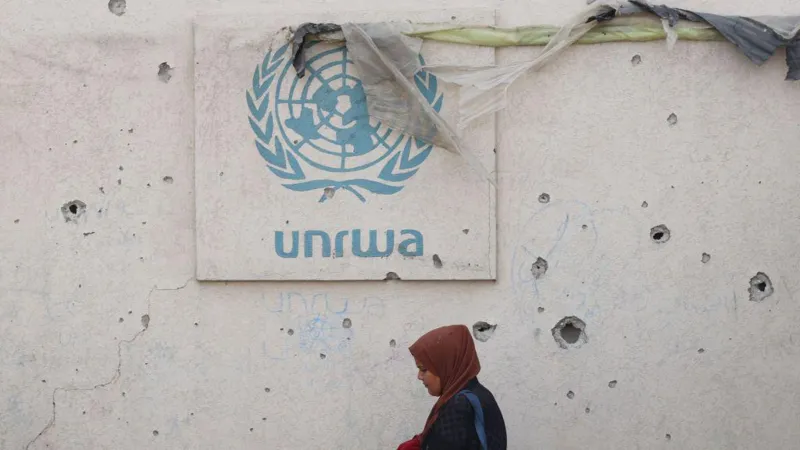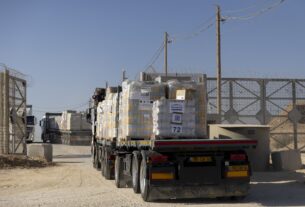Israel has enacted new legislation banning the United Nations Relief and Works Agency for Palestine Refugees (UNRWA) from operating within its territory and restricting its presence in Gaza. The decision follows allegations that several UNRWA employees were involved in the deadly Hamas attack on October 7. While Israel frames the move as a necessary security measure, humanitarian organizations warn it could trigger a severe disruption of essential aid to millions in Gaza, heightening the ongoing crisis.
Controversy Behind the Ban
UNRWA has long been a key provider of services such as food, healthcare, and education for Palestinian refugees. However, Israel has frequently criticized the agency, accusing it of enabling anti-Israel sentiment and maintaining refugee dependency. Recent accusations linking some staff to Hamas operations have fueled these tensions. The Israeli government has defended the ban, arguing that it cannot allow the continuation of what it calls “terror-linked activities” under the guise of humanitarian work.
Israeli officials insist that alternative channels will be coordinated with international partners to ensure that aid still reaches Gaza’s civilians. However, many aid organizations and UN representatives argue that these alternative routes may not be sufficient, given the scale and structure of existing UNRWA operations.
Humanitarian Crisis Deepens
With Gaza already under siege and struggling from continuous bombardments, the ban could have devastating consequences for the enclave’s 2.3 million residents. UNRWA plays a central role in meeting basic needs, providing education to 300,000 children and distributing food to nearly half the population. The sudden disruption of these services risks exacerbating food shortages, restricting access to healthcare, and closing schools at a time when civilians are most vulnerable.
Additionally, Gaza’s infrastructure has been severely damaged by ongoing military operations, limiting its ability to respond to a growing humanitarian crisis. The lack of fuel, electricity, and clean water has placed hospitals on the brink of collapse, with aid groups warning that further disruptions to UNRWA’s operations will worsen the situation.
International Reactions
The decision to ban UNRWA has drawn criticism from international organizations and several governments. Many have expressed concerns that the removal of a long-standing humanitarian actor like UNRWA could deepen the suffering of civilians in Gaza. Some allies, while sympathetic to Israel’s security concerns, have urged it to reconsider or at least delay the implementation of the new policy.
Diplomatic pressure is mounting for Israel to allow at least some form of UN oversight or to increase access for non-governmental organizations. However, Israeli authorities have doubled down on their stance, maintaining that they are prepared to fill any humanitarian gaps through international coordination.
Path Forward
UNRWA’s exit from Gaza will likely have significant implications for regional stability. Aid agencies warn that even temporary disruptions in food, education, and healthcare services could lead to long-term social and economic challenges, potentially fueling further unrest. With winter approaching and resources in Gaza already stretched thin, the need for a sustainable aid mechanism is urgent.
In the coming weeks, all eyes will be on how effectively Israel and its partners can establish alternative aid routes and whether the international community can mediate a resolution that ensures civilians receive the help they need. While Israel’s decision reflects growing security concerns, the humanitarian fallout will be felt most acutely by the people of Gaza, making the need for rapid solutions more critical than ever.
The Times of Israel, Al Jazeera, BBC News, The Guardian, Reuters, CNN,





